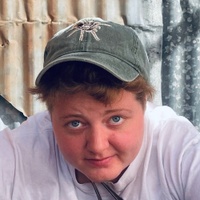As told to Greta Rainbow, 2020 words.
Tags: Journalism, Process, Day jobs, Beginnings.
On the ups and downs of freelance work
Music and culture writer Emma Madden explains how to navigate your writing going viral online, learning as you go along, and the importance of solitude for the writer and reader alike.How did you get into music and culture writing?
I never had an ambition to do it, because I didn’t think it was possible. When I was straight out of university I had this office job with loads of spare hours in the day. Just sitting there, I decided to listen to everything, all the music. I wrote some really horrible reviews, then I started cold pitching. I got some pieces out there eventually. The more I wrote, I got better. I’ve been truly freelance since 2018.
Freelancing is so hard.
It is. I mean, it’s all on you. No sick pay, no holidays, nothing like that. But I didn’t get into this for the hustle, to be honest—I got into this because I like being lazy. I like waking up when I feel like it. Of course, I love writing and I love being able to do it every day, but I also think I’m just not cut out for work and this feels less like “a job.”
Do you ever struggle with the concept of monetizing your creative practice, the thing you’re passionate about?
I journal, and I’ve tried to keep it up during lockdown especially. It’s been really nice to write knowing that no one’s going to read it. There have actually been a few occasions now where I’ve taken lines out from a journal entry because I thought they were quite good, and I put them in other pieces. I’m usually able to write better when I don’t think it’s for an audience. That kind of public writing is more intentional and when I’m journaling it’s spontaneous.
Last year, there was a bit of an online dustup with a piece of yours. Your Q&A with Annie Clark, a.k.a. St. Vincent, was an intentional piece. A publication commissioned you to interview her ahead of her new album, inspired by her father’s release from prison. The morning after you spoke, her team demanded the piece be pulled, saying “she’s terrified of this coming out.” You self-published the transcript about two weeks later, and it circulated on the internet. Tell me about that experience.
I think that by posting the interview, I was posting an “L” on myself as well. It wasn’t my best moment or my best interview at all. In hindsight, I could have asked some of the questions a lot more gracefully. I didn’t write them down before. I just had an idea of, “OK, I want to touch on these things.” I didn’t think about how I was going to articulate them.
I was asked to do the original piece by an editor and I said, “Yes, I love her.” I love St. Vincent. I said to him, “There are a couple suspicions I have going into this.” I was kind of irked by the way she seems to be presenting lyrically and sonically on Daddy’s Home as Candy Darling, the trans actress and muse of Andy Warhol. And I wanted to ask her about that pretty early on. She told me straight up that she wasn’t impersonating Candy Darling. By that point, the interview was very fraught. I didn’t want to go down a line of questioning, like, “What are your thoughts on trans people?” I didn’t want to get into that so I took her word for it.
The album is a reflection on her father’s white-collar crimes. I like starting with big concepts, and letting that trickle into a conversation about the specifics of the art. I was curious to hear her thoughts on prison abolition because I saw that she talked about prison reform in her interview with The Guardian. I thought maybe she could clarify her stance. I’m not usually a writer who’s all that interested in treating interviewees like political spokespeople—I don’t think that good politics always equals good art—but if it’s relevant in contextualizing an album, then why not ask. I did go in with good faith, thinking that she would want to talk about these things, and maybe that was naive. Of course, it’s also hard when you’re only given 30 minutes, continually interrupted by her PR saying she has to get off and do an Instagram Live with Paul McCartney.
How do you prepare for an interview with a musician?
I listen to the album a lot. I read past interviews. I read about weird facts, like for St. Vincent’s last press cycle, she made her interviewers crawl into a pink box and would play a pre-recorded message on a tape recorder if a question bored her. I try to find material that might have influenced the artist. I was reading a bit about Warhol and late ’60s New York, the period that inspired Daddy’s Home. I wanted to see where she was coming from.
How did you feel when you got word that the piece was killed?
My initial reaction was I felt proud of myself. I felt like I’d done my job because Annie Clark has developed this really imperious, intimidating persona and I couldn’t believe that I got through to her in a way. After our call, I was feeling a bit disappointed with how the interview went. I didn’t feel like I necessarily revealed anything core to her. I don’t think anything particularly interesting came up. But the fact that she needed this erased revealed so much. I had to publish it because that information ended up being more valuable than the interview itself.
She really held back, and I guess you can’t judge or glean that much from the interview, but you can read a lot into the interviewee’s decision to kill it. You can see what scares her. You can see what power she has behind her. You can see that she is willing to wield that power behind her. You can consider that choice in relation to this album, which is about flawed people with flawed stories. This is just an assumption, but she might have considered this interview to be a flawed presentation of her, and not wanting it out in the world seems to contradict the message of the art. I’m fascinated by that.
Are you ever intimidated by a celebrity’s power when you’re interviewing them?
I always expect to. Like three hours before the call I’ll get prepared to be nervous, but it’s so weird, I just don’t. But almost anything on a screen doesn’t feel as real to me. The more famous someone I’m speaking to is, the more power they have behind them, the more I tend to challenge them. When I’ve interviewed musicians and it’s their first interview, I kind of go easier and hold their hand for a while. Having said that, after this experience with St. Vincent, I do feel more sympathy towards the uber-famous. I have never really been interviewed before. I don’t know what that feels like. And when you’re doing it on such a large scale, I think the majority of people are going to misinterpret you. The message is never going to be received the way you want it to be.
You were famous for a day on Twitter. Do you feel like you were misinterpreted?
Going viral is kind of dehumanizing. You become part of the discourse, not really a person. I had to just go to the pub and let it play out. But it was also self-actualizing for me because I saw some takes I disagreed with and that really made me more confident in my own opinions. There were criticisms that I did agree with and that will help me move forward from this with grace. I want to be more sympathetic, even towards famous people.
One piece of feedback I got was Craig from Vulture, saying my questions were a bit sensationalized, that I could have changed the topic and asked less about her dad when she was clearly averse to that. And it’s like, fair, yeah. I’m still new at this. I like criticism and it does benefit me.
I feel like once a week I have a crisis about not being famous, not having a platform that guarantees people will consume my work. And at the same time can’t imagine being an entity so beyond myself.
Being a freelancer, you are not abstracted into this whole media marketplace. You’re still a person, or you can choose to be. Of course, you can abstract yourself. But I feel like I have an aerial perspective on everything. I’m not vulnerable to a lot of legal and institutional damages because I’m not a subject of law, really, or a subject of an institution. I don’t like Twitter so much because I don’t want to be a subject of social media.
You become a bad reader on Twitter. The information is passed top down and it becomes increasingly degraded and consumable. I don’t want a platform of bad readers. I want a platform of good readers. And I don’t think that by going viral on Twitter, I’d necessarily find them.
How might one cultivate an audience of good readers?
I feel Twitter encourages a culture of ultra deference. When you log on, it’s like you’re entering a class where only one or two people have done the reading, and everyone else shows up, not just to copy their notes, but to try and desperately align themselves with their smart classmates’ reading of the world. It’s reading in reverse because the conclusion comes first. I’m all for community meaning-making, but I think good reading requires a degree of isolation. On Twitter, reading is social. Good reading requires close attention; subtlety and stridency. Good reading requires actually engaging with a text and not just someone’s reading of someone’s reading of someone’s reading of someone’s reading of a text. The more your text is spread online, it seems, the less it is actually read.
Something that I love that you tweeted was like, “Twitter is pretty much freelancers’ H.R. department.”
The reason this piece went viral on Twitter, in my opinion, isn’t because the interview was all that interesting, it’s because we’re constantly trying to figure out the boundaries of what’s good practice and what’s bad practice. Is it good that this journalist posted this interview even though the artist said not to? It makes people reconfigure their opinions as an industry. We’re discussing what a good civilization would look like in real time. I go on to Twitter and I see people shaming all sorts of behavior, which I’ve actually learned quite a lot from. If someone makes fun of a certain quirk of mine, it makes me reflect on it in a way I haven’t before. It’s also a bit too much sometimes.
How do you find an album that speaks to you that you want to write about?
I try to listen to as much as possible of what publicists send me and when I can tell a musician is for me it’s in their voice. It’s when they’re putting out something that they’re almost embarrassed to put out, that’s my favorite kind of music. I think I have a pretty good bullshit detector. For example, I had an album by someone called Anjimile. And it’s everything I look for when I want to find something to write about: it’s so natural, it could just be birdsong for them. I mean, contrived and glamorous and sexy is great. I usually look for stuff that’s maybe the opposite, that’s unsexy, like singing about the most mortifying parts of your life. I’m really drawn to straight female singers who are like, “I love my daddy boyfriend.”
So are you a Lana Del Rey fan?
Yeah. Extremely.
Can’t wait for that interview.
Emma Madden Recommends:
Jazz by Toni Morrison
Ys by Joanna Newsom
Capital Volume II by Karl Marx
A twenty-two mile walk in the Sussex countryside
Going to Starbucks and just talking shit all day




